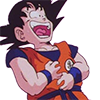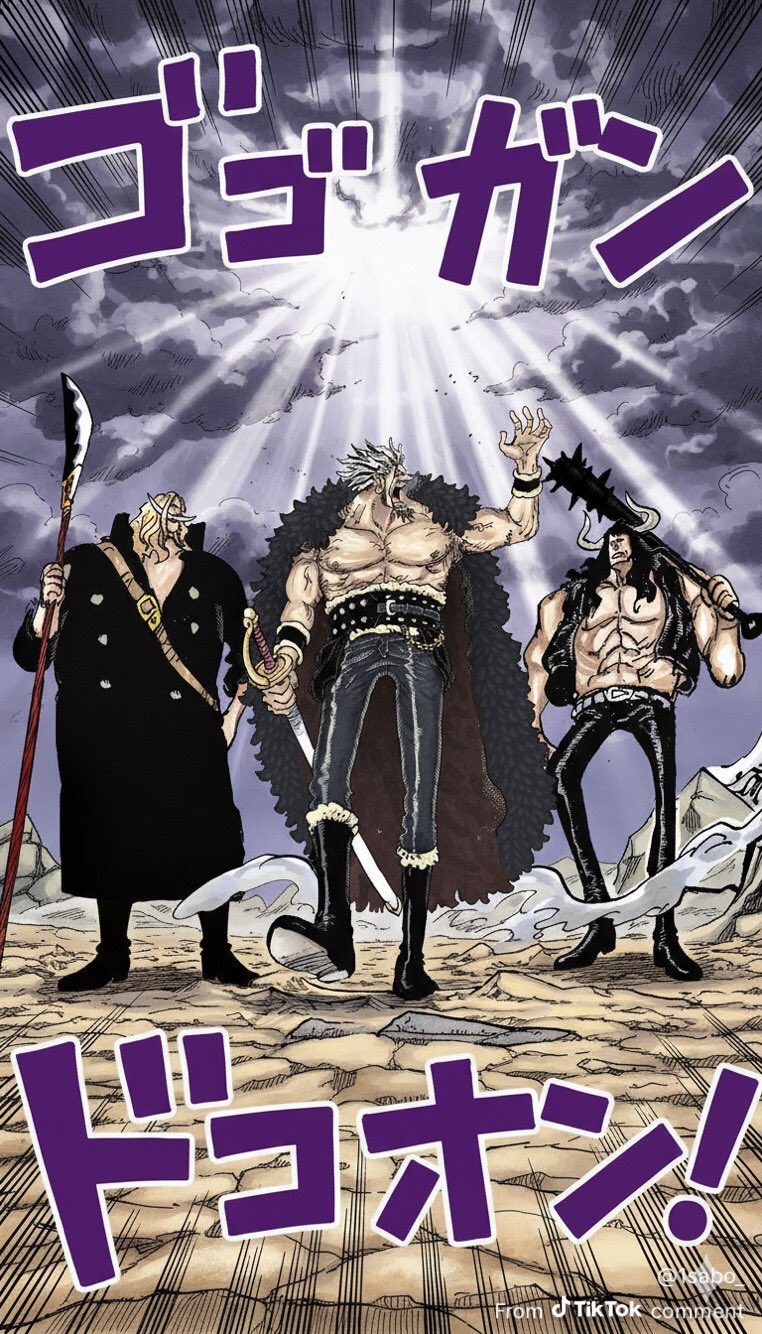Spoiler One Piece Chapter 1162 Spoilers Discussion
- Thread starter AL sama
- Start date
- Status
- Not open for further replies.
More options
Who Replied?
Different context then. "we can't be the heroes of this country" means the navy, but when Fujitora says "we are birds of the same feather" he means him and Sabo, since his subordinates probably don't agree with his views on the navy being corrupt
Any other interpretation is you pushing your preference on manga.
Yeah, they're after the same thing here. Saving Dressrosa
2) Why would Revolutionaries NOT want to save Dressrosa? Fujitora would have no reason to "realize" they are "birds of the feather" for that.
Sabo killed time with Fujitora yes. Sabo versus Burgess is different because he sees his only living relative being carried on strangers backs as a Shichibukai hunts him down.
And he believed in Luffy, he made a gamble
He's not going off to waste time with Burgess, he's actually fighting him to keep him away from Luffy. And we have Sabo outright having deep trauma about not helping a brother in need.
And we see that, after Doflamingo is beaten, Sabo just casually leaves Burgess who is lying on the ground wrecked.
2) Luffy wasn't a brother in need, he is a pirate breaking out in the world who wanted to beat Doflamingo himself.
I mean Kaidou and Whitebeard weren't the type to betray to begin with.
Bigmom though.
Bigmom though.
Orochi was straight up an idiot lol.
Whom did kaidou betray in his own crew?
Whom did kaidou betray in his own crew?
They were still allied for over two decades.
You can cope all you want, but Kaido attacking Orochi was still act of betrayal.
Also when it comes to Big Mom, she didn't betray anyone in her crew either, the Vinsmokes weren't fully allied with her yet when she decided to betray them.
I'm not trying to take sides about the Sabo and Fuji topic here but it is interesting, their actions at Dressrosa did kinda confuse me and it's funny how both were big players in the Reverie incident later and Fuji ended up letting slaves escape and never trying to truly capture and take down Sabo either. He was always sandbagging based on his own personal justice/beliefs and morals too ofc.
The thing I wanted to mention actually, someone pointed out Sabo used a chess themed move against Imu.:

I love that. I'm not sure what it means as I'm not a chess fan but I love the idea of Dragon being the chessmaster and Sabo is inheriting that too somewhat? It explains Dragons reluctant to take action and being so passive and suits its pacifist nature too. He's more like a modern commander general /king that would rather sit back and command others to fight for him and take risks, make sacrifices rather than the generals and kings who would go out and fight, risking their own lives in ancient history. If that makes sense?
But Oda is probably trying to symbolise something bigger here too. I don't think Sabo will always be loyal to Dragon and he's got a much darker, more savage and wrathful side as he showed vs Bastille and Burgess in Dressrosa. I was really hoping Oda would elaborate on that but alas. Sabo being hailed as the Flame Emperor and having such infamy worldwide, people revering him and seeing him as a hero just like Luffy, both of them being major liberators of oppressed countries and Sabo having huge banners of him put up to celebrate him in some countries, I feel this will have greater pull/consequences in future somehow.
I asked AI to help me explain this better too:
The thing I wanted to mention actually, someone pointed out Sabo used a chess themed move against Imu.:

I love that. I'm not sure what it means as I'm not a chess fan but I love the idea of Dragon being the chessmaster and Sabo is inheriting that too somewhat? It explains Dragons reluctant to take action and being so passive and suits its pacifist nature too. He's more like a modern commander general /king that would rather sit back and command others to fight for him and take risks, make sacrifices rather than the generals and kings who would go out and fight, risking their own lives in ancient history. If that makes sense?
But Oda is probably trying to symbolise something bigger here too. I don't think Sabo will always be loyal to Dragon and he's got a much darker, more savage and wrathful side as he showed vs Bastille and Burgess in Dressrosa. I was really hoping Oda would elaborate on that but alas. Sabo being hailed as the Flame Emperor and having such infamy worldwide, people revering him and seeing him as a hero just like Luffy, both of them being major liberators of oppressed countries and Sabo having huge banners of him put up to celebrate him in some countries, I feel this will have greater pull/consequences in future somehow.
I asked AI to help me explain this better too:
Dragon is most strategic out of top tiers, no doubt.
I don't think Sabo has "unusually" dark side, he is just willing to do ugly things to achieve their goal.
Sabo will definitely be a major leading figure in the future.
They definitely get along very well.
Dragon is most strategic out of top tiers, no doubt.
I don't think Sabo has "unusually" dark side, he is just willing to do ugly things to achieve their goal.
Sabo will definitely be a major leading figure in the future.
Dragon is most strategic out of top tiers, no doubt.
I don't think Sabo has "unusually" dark side, he is just willing to do ugly things to achieve their goal.
Sabo will definitely be a major leading figure in the future.
hes not a great warrior like larp
- Status
- Not open for further replies.






